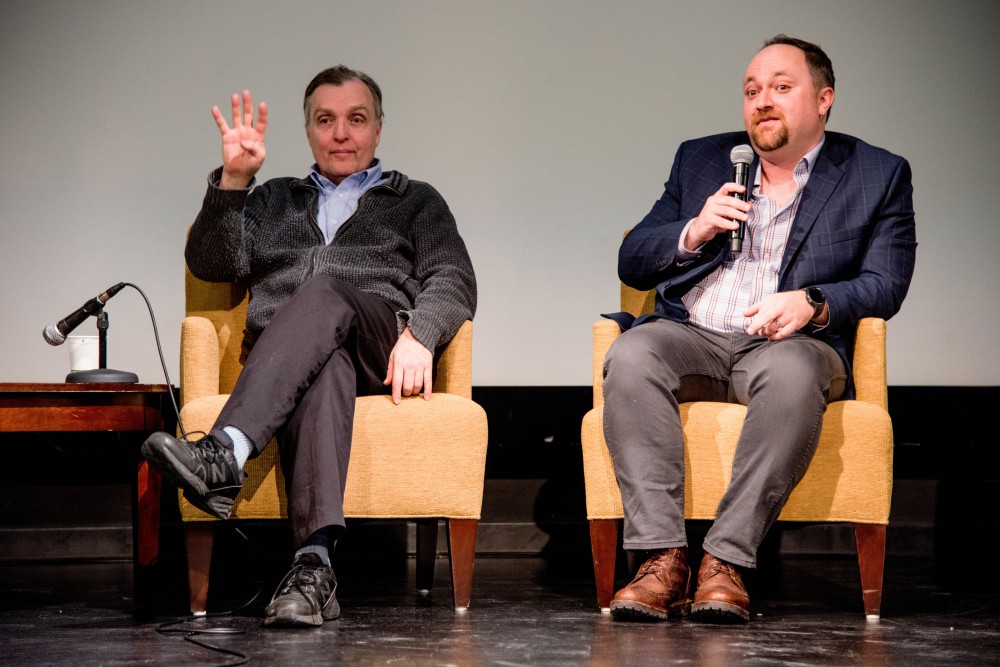Minneapolis City Council members held a town hall at the University of Minnesota on Wednesday to discuss their plans to address student housing needs.
Ward 2 City Council Member Cam Gordon and Ward 3 City Council Member Steve Fletcher fielded questions prepared by the Minnesota Student Association before the audience engaged the council members.
“Affordable housing was a big issue during the election, so we wanted to give students an opportunity to ask questions and voice their concerns,” said Grant Simons, MSA representative to the Marcy-Holmes Neighborhood Association and moderator of the town hall held at Coffman Memorial Union.
The two were asked what they could do on the council to increase affordable housing stock.
Fletcher said the City should focus on building more affordable housing that isn’t geared toward students.
The construction of public housing, even if students don’t qualify for it, would decrease competition for campus housing and ultimately benefit the community, Fletcher said.
“If we build any kind of affordable housing right now, there are all kinds of people competing for that housing stock,” he said. “If we can build public housing, even if it’s something that students don’t qualify for, that takes them out of competition for housing.”
Gordon also mentioned an ordinance currently in the works that would allow students to register their home as an “intentional community,” which he said could make housing more affordable.
“That’s a step to improving things. There’s still some resistance in some of the neighborhoods because of the density issue,” Gordon said. “I can think of people who still have concerns over the occupancy code, even though I consider it to be kind of an unfair rule.”
The University could also help improve campus housing stock by building more dorms, Fletcher said.
“That’s a way that the University actually could sort of set a housing market, by creating something for private housing to compete with,” he said.
Fletcher said he hopes that reducing parking requirements in areas like Dinkytown will help drive down prices.
“It’s very expensive to build underground parking facilities,” he said. “One of the things that does is it limits the kind of housing we can expect to be built. It’s a lot of the reason some of the very expensive housing has been built.”
Both Gordon and Fletcher stressed the importance of student involvement in local neighborhood associations. Fletcher said he believes student voices aren’t always present in the conversation, and more participation could help promote understanding.
“One of the things that happens is people who have used a neighborhood a certain way for a long time tend to be the people who show up at neighborhood meetings, tend to call 311 with complaints and tend to be the people who show up at planning commission meetings,” he said. “They have a vision for what the neighborhood should be, and it’s not always the vision that students would advocate for.”
Correction: A previous version of this story referred to the wrong ordinance that was mentioned by Gordon.








